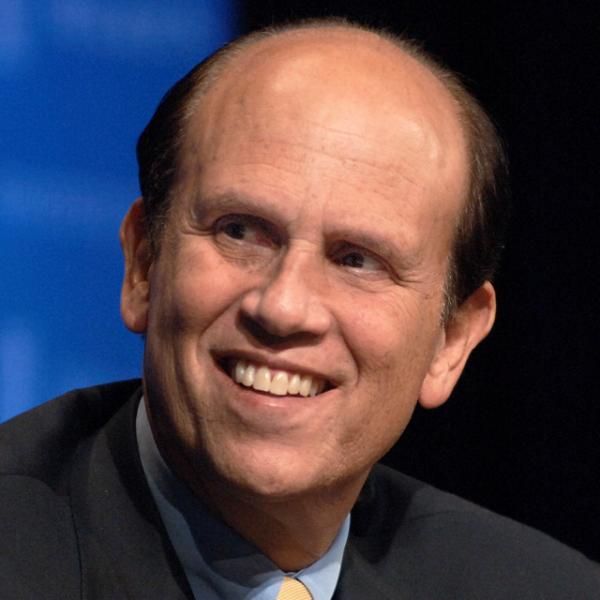Comment Letter
Comment Letter
Digital Asset Market Structure Discussion Draft
Submitted electronically
| The Honorable Patrick McHenry Chairman Committee on Financial Services US House of Representatives Washington, DC 20515 |
The Honorable Maxine Waters Ranking Member Committee on Financial Services US House of Representatives Washington, DC 20515 |
| The Honorable Glenn “GT” Thompson Chairman Committee on Agriculture US House of Representatives Washington, DC 20515 |
The Honorable David Scott Ranking Member Committee on Agriculture US House of Representatives Washington, DC 20515 |
Dear Chairman McHenry, Ranking Member Waters, Chairman Thompson, and Ranking Member Scott:
The FinTech Program of the Milken Institute is pleased to provide comments on the Digital Asset Market Structure Discussion Draft (“Discussion Draft”) by the US House Committee on Financial Services and the US House Committee on Agriculture. We are at a crucial moment where innovation in finance and financial markets catalyzes our need to focus on the responsible development of the digital asset economy, with trust, security, and market integrity at the center. We believe that it is imperative that financial markets and institutions are safe, sound, and fair, providing buyers and sellers with an efficient, innovative, and competitive financial system. We acknowledge that the responsible financial innovation of digital assets creates an opportunity to analyze, clarify, and modernize current frameworks, laws, and regulations. The smooth and efficient operation of the financial markets ensures a reliable and fair experience for all market participants.
As a nonprofit, nonpartisan think tank, the Milken Institute believes in the power of capital markets to solve urgent social and economic challenges to improve lives. At the heart of the Institute’s work is the idea that economic mobility is possible with an educated, healthy workforce; open and efficient capital markets; and effective social institutions. The work of our FinTech Program prioritizes how government and industry should work together to address responsible financial innovation.[1] Our engagement and education of policymakers and stakeholders on FinTech’s impact on public policy emphasize the value of access to capital, financial inclusion, and regulatory transparency and accountability. When we ensure that FinTech innovations are accessible to individuals and businesses while also increasing the efficiency of the US financial system, we create a formula for a market opportunity that can be realized by us all.
We are encouraged by the efforts of the US House Committee on Financial Services and the US House Committee on Agriculture to provide much-needed legal certainty and regulatory clarity to the digital asset ecosystem. The Discussion Draft is a positive step to address the urgent need for a framework the market can adhere to and rely upon. We appreciate the committees’ engagement with stakeholders and consideration of the comments and recommendations made herein.
Our comments and recommendations are built upon principles and values important in modernizing market structure to account for responsible digital asset innovation. They focus on the following priority areas:
-
Digital Assets Taxonomy
-
Agency Harmony
-
Responsible Financial Innovation and Transparency
-
Activity Regulation and Technology Innovation
-
Financial Inclusion and Education
Comments and Recommendations
1. Digital Assets Taxonomy
Definitions and classifications in the Discussion Draft are foundational to understanding who is subject to regulation and by which regulatory agency. As the digital assets space evolves, so too do the language, definitions, and classifications of digital assets. We value clear and accurate definitions that give market participants a common understanding that can be communicated, messaged, marketed, and relied upon. The Discussion Draft amends the Securities Act of 1933 by adding a number of new definitions, such as “Digital Assets,” “Blockchain,” and “Decentralized Networks.”
For example, the Discussion Draft’s definition of “Blockchain” in Section 101 currently contemplates blockchains with publicly available source code while omitting permissioned blockchains in the definition. Permissioned chains are closed to the public and have a security layer where access is for a limited group of participants who have been granted permission by an administrator. If the “Blockchain” definition is intentionally specific to address public blockchains, we recommend using the term “Public Blockchain” throughout the draft or explicitly carving out permissioned chains within the current definition of “Blockchain.”
We recommend that the next draft include conforming amendments to definitions in the Securities Exchange Act of 1934 and the Investment Company Act of 1940. Relatedly, depending on how Digital Assets subject to Securities and Exchange Commission (“SEC”) jurisdiction are defined, they may or may not be covered by the Securities Investor Protection Act of 1970 and Securities Investor Protection Corporation insurance.
2. Agency Harmony
We value the construction of a digital assets regime that rightly classifies assets as a security or a commodity and grants supervisory authority to the agency best suited. We appreciate Section 104 of the Discussion Draft, which provides for joint rulemaking between the SEC and the Commodity Futures Trading Commission (“CFTC”), including joint rulemaking related to defining key terms in the Discussion Draft and the oversight of dually registered exchanges.
In recent history, the Dodd-Frank Act divided the regulatory authority of swap agreements among the CFTC and SEC, allowing the SEC to have authority over security-based swaps while providing the CFTC authority over all other swaps. We see a similar approach taken in the Discussion Draft with the CFTC’s authority over digital commodities, digital commodities brokers, digital commodities dealers, digital commodities custodians, and digital commodities exchanges, and the SEC’s authority over digital assets classified as securities.
In the spirit of accountability and expeditious implementation, we recommend adding deadlines for all provisions requiring SEC, CFTC, or joint rulemaking. And we further recommend scheduling hearings around each deadline to hold the agencies accountable. We also recommend adding annual Government Accountability Office studies on how well the agencies are meeting their rulemaking deadlines and how well they are coordinating their regulatory activities.
A more streamlined venue and platform would enable market participants to better register and comply with the requirements of financial market regulators. Although not likely feasible at this time, consider merging the SEC and CFTC into one agency. Committee jurisdictional concerns could be addressed by giving joint jurisdiction over several activities.
Section 503 of the Discussion Draft establishes a Joint CFTC-SEC Advisory Committee on Digital Assets (“Advisory Committee”) composed of digital asset marketplace stakeholders to provide recommendations to the CFTC and SEC. To ensure that the advisory committee accurately reflects changes in the evolving digital assets ecosystem, we recommend the addition of term limits for Advisory Committee members and a provision to fill vacancies resulting from members not completing their full two-year terms.
3. Responsible Financial Innovation and Transparency
Responsible financial innovation is critical to the US financial system’s growth, competitiveness, and resilience. Market integrity and transparency underpin market confidence, consumer protection, and financial inclusion. Decentralized finance (“DeFi”) is shifting the financial paradigm, and protocols have the power to democratize finance, empowering individuals to control their data and financial transactions fully. DeFi enables high-speed, low-cost domestic and cross-border transactions, empowers additional online financial services for the underbanked, and protects privacy and user data.
In the case of decentralized networks, Section 505 of the Discussion Draft requires the SEC and the CFTC to conduct a study on DeFi, which includes an analysis of the size, scope, role, nature, and use of DeFi protocols, the benefits and risks of DeFi, how DeFi has integrated into the traditional financial markets, and the levels and types of illicit activities in DeFi compared to traditional financial markets. This provision of the Discussion Draft highlights an opportunity to consider safe harbors and sandboxes as a space for developing innovations in DeFi.
We recommend incorporating SEC Commissioner Hester Peirce’s “Token Safe Harbor Proposal 2.0”[2] to provide network developers with a three-year grace period within which, under certain conditions, they can facilitate participation in and the development of a functional or decentralized network, exempted from the registration provisions of the federal securities laws.
4. Activity Regulation and Technology Innovation
When considering digital assets, regulators should aim to regulate activity by understanding and using technology. We recommend that the CFTC and SEC receive the funding and resources necessary for the additional functions outlined in the Discussion Draft. Sections 501 and 502 of the Discussion Draft are important technology laboratories for the SEC and CFTC.
Section 501 codifies the SEC Strategic Hub for Innovation and Financial Technology (“FinHub”), which will assist the SEC with its approach to technological advancements, examine the impact that FinTech innovations have on capital markets, market participants, and investors, and coordinate the SEC’s response to emerging technologies in financial, regulatory, and supervisory systems.
Section 502 codifies LabCFTC, which will serve as an information source for the CFTC on FinTech innovation, ensure the CFTC is more accessible to FinTech innovators and bolster the FTC’s understanding of new technologies, and serve as a forum for innovators seeking a better understanding of the CFTC’s regulatory framework.
We recommend the further coordination of technological advancements and tools by the CFTC and SEC through the Joint CFTC-SEC Advisory Committee. We recommend a subcommittee on technology and financial innovation where FinHub and LabCFTC can share and coordinate cross-jurisdictional issues related to emerging financial technology.
5. Financial Inclusion and Education
Digital assets, whether digital security or digital commodity, marketed without appropriate disclosure standards can expose vulnerable consumers to undue risk. Consumers need more material information to participate fully in the digital assets market. There is a danger of “predatory inclusion” when vulnerable communities are targeted by financial services that are not in their best interest. We recommend that consumer protection standards commit to safeguarding consumer interests and ensuring consumers’ fair and responsible treatment. We believe easy-to-understand consumer communication is foundational.
To promote financial inclusion, we recommend that the Discussion Draft incorporates financial inclusion and education as specific goals. We recommend adding provisions that require setting standards for financial inclusion, tracking and measuring the impacts on end users, and including detailed and consumer-facing information outlining the risks, benefits, and attributes of digital assets in disclosures.
Conclusion
The Milken Institute strongly supports legislation that will build a regulatory framework to bring trust, clarity, and market confidence to the digital assets market.
We are encouraged by the work of both committees on the Digital Assets Market Structure Discussion Draft and the willingness of members and staff to engage stakeholders for comments to improve the draft. We appreciate the committees’ consideration of the comments and recommendations made in this letter. We would be pleased to meet with you and your staff to discuss these critical issues and serve as a resource as you refine the legislation.
Sincerely,
Michael Piwowar
Executive Vice President
MI Finance
Milken Institute
Nicole Valentine
Director, FinTech Program
MI Finance
Milken Institute
Maxwell DeGregorio
Associate, FinTech Program
MI Finance
Milken Institute
CC:
The Honorable French Hill
Chairman, Subcommittee on Digital Assets, Financial Technology, and Inclusion
US House Financial Services Committee
The Honorable Stephen Lynch
Ranking Member, Subcommittee on Digital Assets, Financial Technology, and Inclusion
US House Financial Services Committee
The Honorable Dusty Johnson
Chairman, Subcommittee on Commodity Markets, Digital Assets, and Rural Development
US House Agriculture Committee
The Honorable Yadira Caraveo
Ranking Member, Subcommittee on Commodity Markets, Digital Assets, and Rural Development
US House Agriculture Committee
[1] The FinTech Program pursues our mission through these three goals:
-
Conduct research and analysis of opportunities and challenges that FinTech presents globally with a focus on driving changes to benefit the end user. Our work examines the impact that access, affordability, and agility have on the end user. Expanding access impacts well-being, inclusion, equity, and ownership. Making entry to FinTech products affordable impacts mobility, opportunity, and wealth creation. And agility impacts accuracy, speed, and efficiency. These impact areas are embedded in our analysis of issues and govern the approach to our work.
-
Convene FinTech thought leaders, business leaders, experts, policymakers, government officials, and key stakeholders to contribute ideas and drive actions needed to advance policy objectives at policy and expert roundtables, FinTech Advisory Council meetings, and year-round Institute summits, conferences, and dialogues.
-
Connect the FinTech program, publications, and convenings to policy and regulatory changes, industry innovation, and public impact.





















